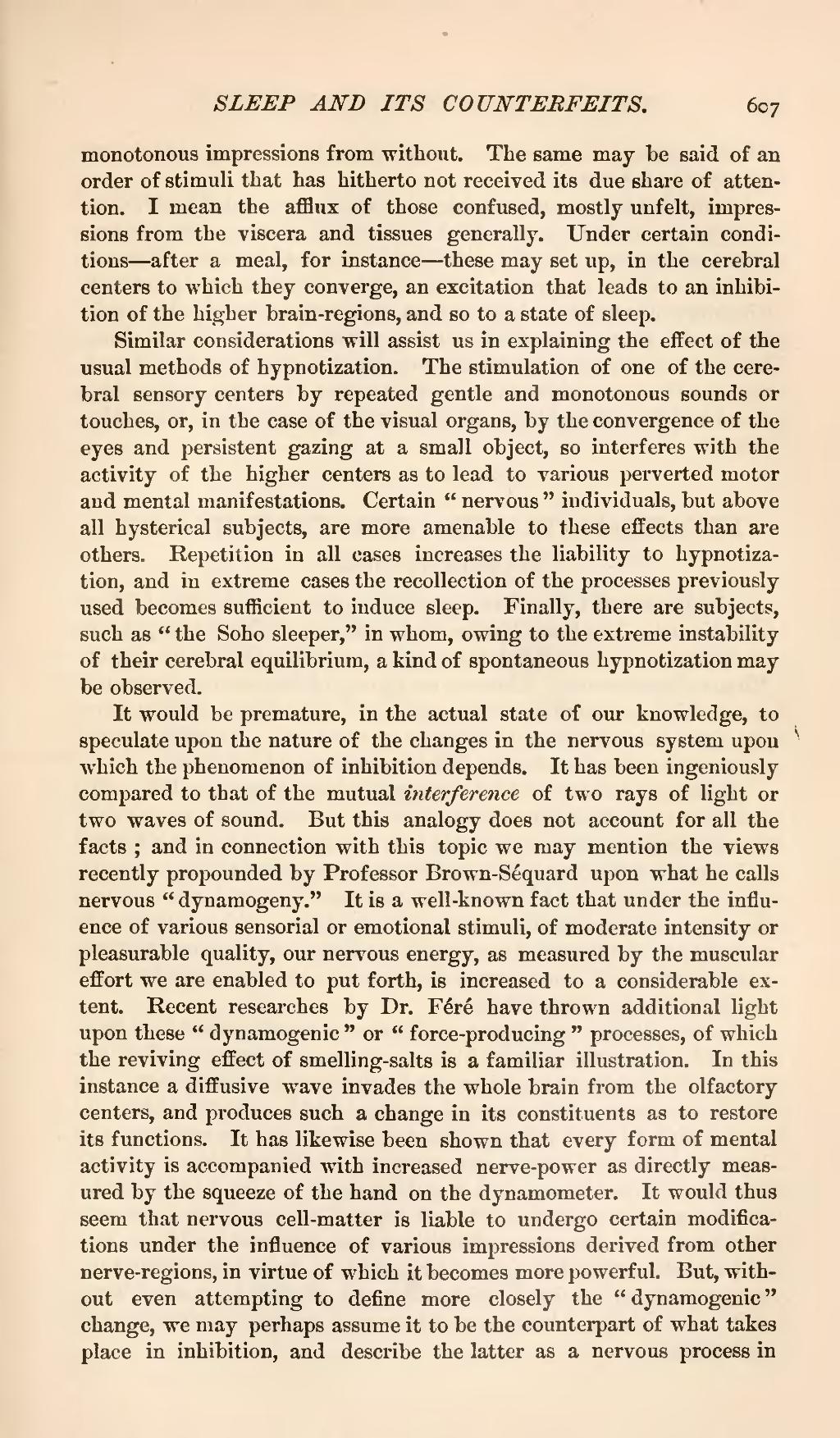monotonous impressions from without. The same may be said of an order of stimuli that has hitherto not received its due share of attention. I mean the afflux of those confused, mostly unfelt, impressions from the viscera and tissues generally. Under certain conditions—after a meal, for instance—these may set up, in the cerebral centers to which they converge, an excitation that leads to an inhibition of the higher brain-regions, and so to a state of sleep.
Similar considerations will assist us in explaining the effect of the usual methods of hypnotization. The stimulation of one of the cerebral sensory centers by repeated gentle and monotonous sounds or touches, or, in the case of the visual organs, by the convergence of the eyes and persistent gazing at a small object, so interferes with the activity of the higher centers as to lead to various perverted motor and mental manifestations. Certain "nervous" individuals, but above all hysterical subjects, are more amenable to these effects than are others. Repetition in all cases increases the liability to hypnotization, and in extreme cases the recollection of the processes previously used becomes sufficient to induce sleep. Finally, there are subjects, such as "the Soho sleeper," in whom, owing to the extreme instability of their cerebral equilibrium, a kind of spontaneous hypnotization may be observed.
It would be premature, in the actual state of our knowledge, to speculate upon the nature of the changes in the nervous system upon which the phenomenon of inhibition depends. It has been ingeniously compared to that of the mutual interference of two rays of light or two waves of sound. But this analogy does not account for all the facts; and in connection with this topic we may mention the views recently propounded by Professor Brown-Séquard upon what he calls nervous "dynamogeny." It is a well-known fact that under the influence of various sensorial or emotional stimuli, of moderate intensity or pleasurable quality, our nervous energy, as measured by the muscular effort we are enabled to put forth, is increased to a considerable extent. Recent researches by Dr. Féré have thrown additional light upon these "dynamogenic" or "force-producing" processes, of which the reviving effect of smelling-salts is a familiar illustration. In this instance a diffusive wave invades the whole brain from the olfactory centers, and produces such a change in its constituents as to restore its functions. It has likewise been shown that every form of mental activity is accompanied with increased nerve-power as directly measured by the squeeze of the hand on the dynamometer. It would thus seem that nervous cell-matter is liable to undergo certain modifications under the influence of various impressions derived from other nerve-regions, in virtue of which it becomes more powerful. But, without even attempting to define more closely the "dynamogenic" change, we may perhaps assume it to be the counterpart of what takes place in inhibition, and describe the latter as a nervous process in
